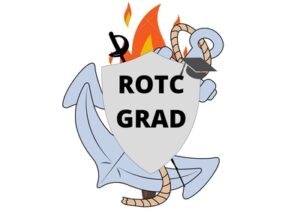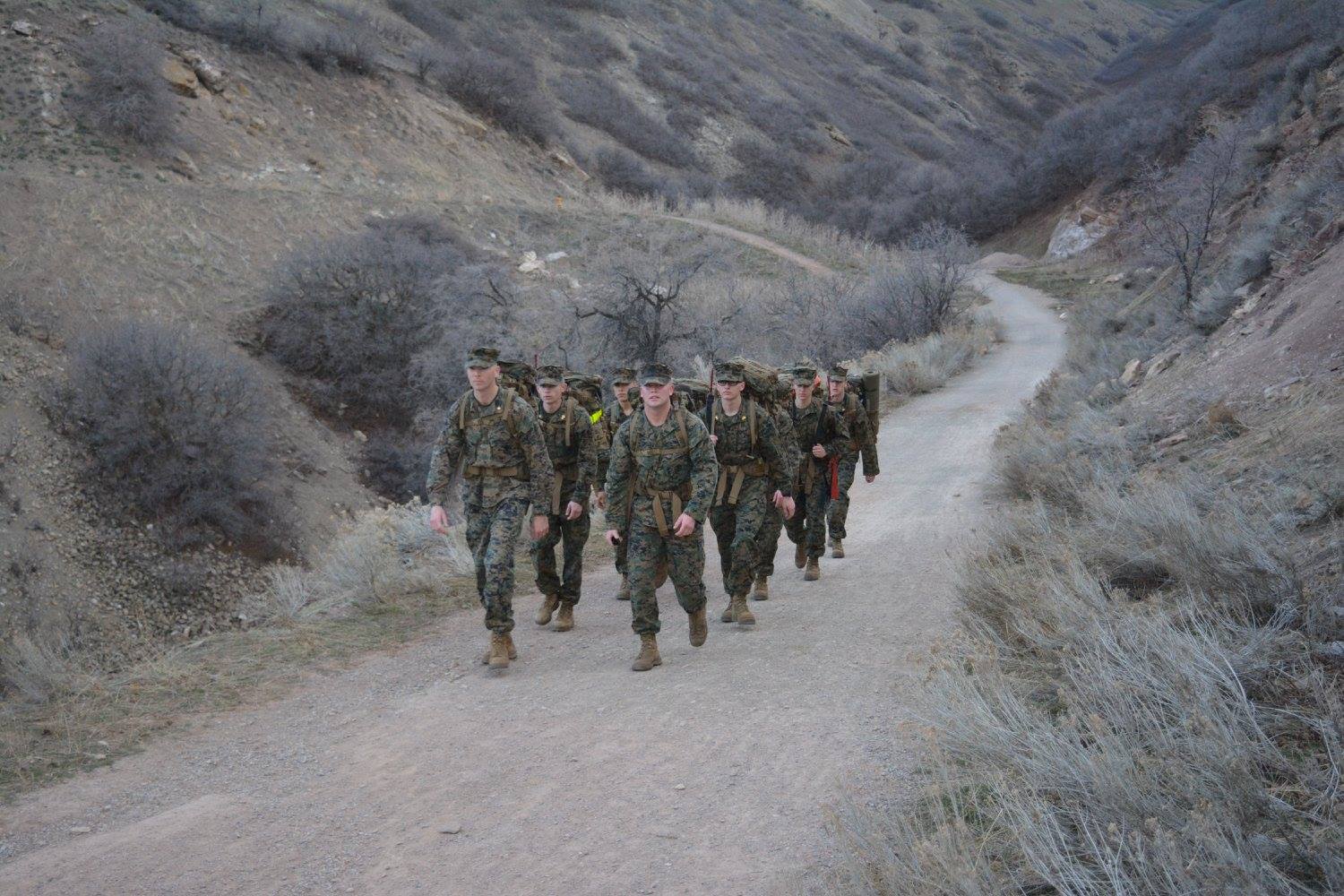
Introduction
It’s really hard to find exactly the information you want to know about Marine officer training. Before I went through the entire training pipeline, I always knew that I would be sent into an extremely challenging Boot Camp environment.
But what exactly does this consist of? And what makes Marine officer training so much harder than the rest? In this article I’ll share with you my entire experience, what you need to know if you were planning to go through this pipeline, and what the biggest challenges are.
At the end of this article, I’ll leave my contact information if you have more questions or comments.
So how hard is Marine Officer training really?
Marine officer training is one of the hardest pipelines to go through in the military because of its long and tedious development process. It demands peak physical standards of cardio and strength, high academic attention to detail and decision making skills in adverse environments, and unwavering character to do what is right.
Pre-OCS Training Explained
This part of your training can be as hard or easy as you want it to be if you prepare. The harder you go on yourself during the pre-OCS training phase, the more it will serve you throughout the rest of the pipeline.
If you go through Navy ROTC, you’ll receive dedicated OCS front classes every Friday in the morning for a couple hours.
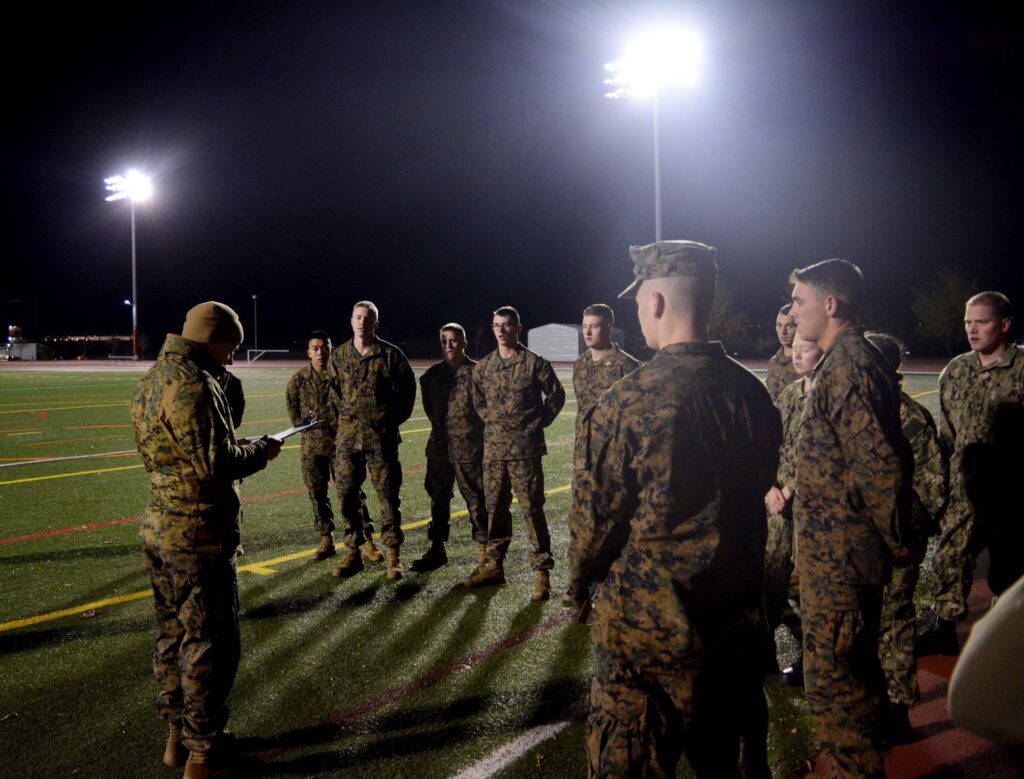
Sometimes these classes mimic a Boot Camp environment, and you’ll conduct intense circuit workouts with the staff drill instructors. If your college has a Navy ROTC unit on campus, you can actually enroll in these classes without having to be a part of ROTC. these classes are hands-down the best way to prepare for Officer candidate school. You can take these OCS prep classes every year until you decide to actually attend, and even if you already graduated college, the on-campus unit should still be able to accommodate you and your attendance.
OCS training at a unit that has an OSO isn’t that intense and they meet less often.
Once or twice a month, you will conduct workouts with a local officer recruiting unit that consist of fartlek runs carrying medicine balls, a stretcher with weight, and other types of gear. They don’t teach you as much about academics as a Navy ROTC unit will. Attendance is also not regulated, so it really comes down to how well you can train for OCS by yourself.
If you’ve already graduated college and are applying to go to OCS in a couple months or a few weeks, then I highly recommend trying to find a OCS prep class with a Navy ROTC unit within an hour of your location. It’s awesome to be able to train by yourself, but you’ll get way more out of actually going to a class and being immersed in a more realistic environment. Again, these classes are meant to prepare you, not tear you down and make you feel useless.
**Important note: if you attend the Naval Academy you do not go to Marin OCS. He will attend for a couple weeks to get a brief tour to see what everyone else goes through, but you will not be evaluated and screamed like everybody else. The Naval Academy is an extremely demanding school in itself, and all four years of attending this place equals an OCS increment.
Officer Candidate School Explained
The hardest part is usually the culture shock for civilians.
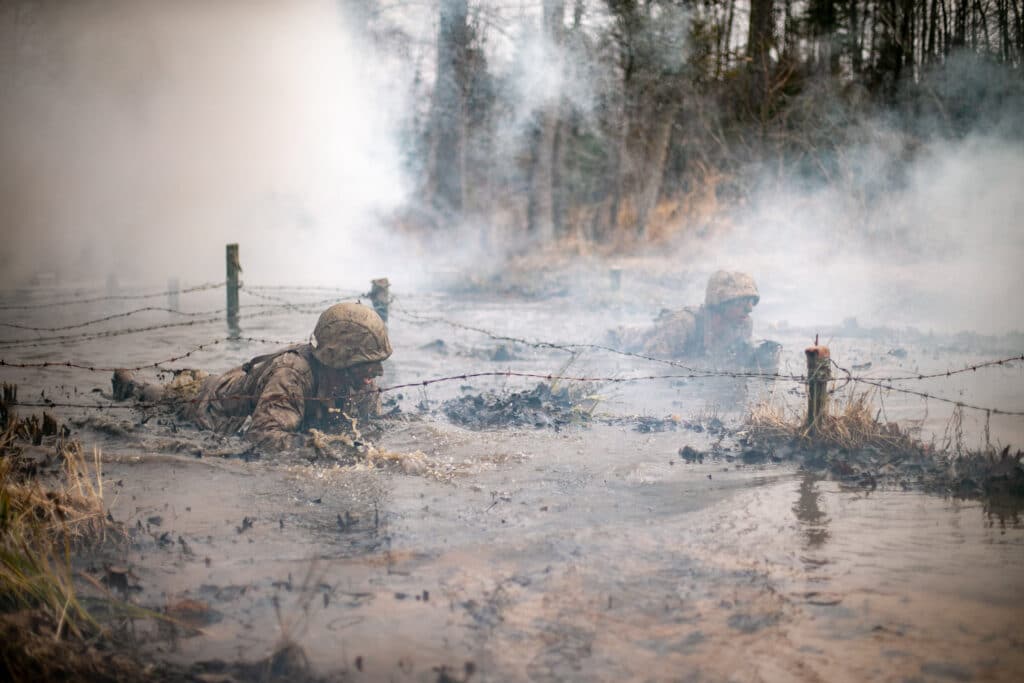
Even as a junior in the Navy ROTC program and having gone through a couple iterations of my units prep classes, I still had to adjust to the intense environment. The yelling, screaming, and fast pace of movement there’s some thing you can only adjust to once you’re actually there.
There’s also a lot of random rules for how you’re allowed to walk, eat your meals, make your bed, and talk to instructors and fellow candidates. You also get assigned essays if you mess up on any of these strict and unusual rules.
The physical fitness aspect of OCS is demanding and heavy on cardio abilities
The best type of fitness you can have going into OCS is cardio conditioning. You’ll put tens of miles on your feet per day you attend. If you run every day leading up to OCS and don’t over train, then your legs will be used to the mileage and you shouldn’t get shin splints. Another good way to reduce in splints is to swim with fins on for 30 to 60 minutes a day to strengthen your ankles. Most candidates are expected to be able to run a 3 mile in 19 minutes or less
The weather is usually unfavorable, almost by design.
It doesn’t matter what time of year you go, they will ensure you are exposed to rain, coldness, or heat and humidity and the Quantico summer. When I went to OCS, I was not accustomed to humidity, coming from California. If you have the opportunity based on the region you live in, I highly recommend training in adverse conditions in a safe manner. As long as you hydrate really well and make sure you eat sufficiently at OCS, then eventually your body will adapt. They also spend the first week giving you a period to acclimate why not training you to strenuously and let you on blouse your boots if it’s really hot.
The Basic School
Graduating OCS is a major accomplishment for everyone, however the training does not get any easier. Your body and mind gets stronger as the standards of performance increase.
Hiking is usually the hardest part
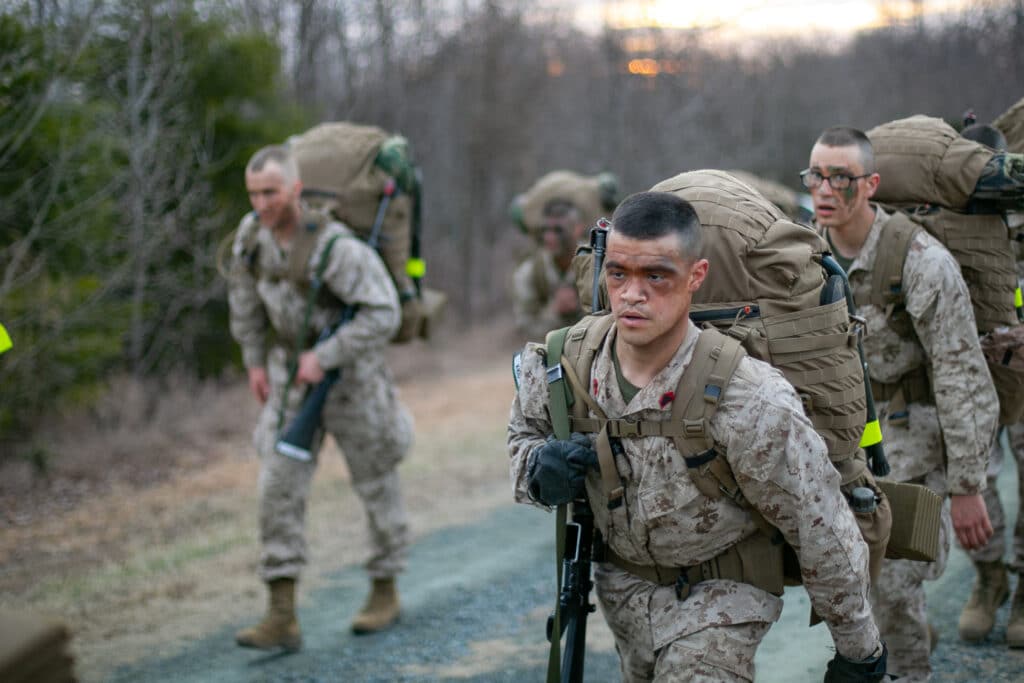
If you talk to anyone who’s graduated TBS, they’ll tell you that hiking was one of the more challenging aspects of this school house. They are slowly increasing the standards by making marine officers hike back from every field event after they’ve already walked for miles on end with heavy packs. The more able you become at adapting to the weather, the environment, and the pace of operating in the field, the more effective and efficient you’ll be with your energy to be able to hike up to 10 miles back from a field operation.
You spend more time in the field in all types of weather
The field also brings adverse conditions, especially in the winter. No matter how cold or hot temperatures may be, he will always go to the field and conduct offense and defense attacks on other platoons. It’s great training, but being soaking wet and cold takes a little bit of the fun out of it. The instructor staff will always make sure training is safe however, but it’s not uncommon for a good chunk of officers to get extracted from the field due to heat exhaustion, hypothermia, or more severe injuries. From my experience, I found it as long as I was properly eating, drinking, and stretching during the downtime in the field, I was never worried about sustaining injuries.
Performance standards don’t drop despite busy and chaotic training schedules.
During TBS, you were competing against the other 260 marine officers for the job specialty you wanted. People are ranked based on academic, physical, and leadership grades. And while everybody comes back from the field sleep deprived, they still expect exceptional test scores on the academic test the next day. The Marine who continues to study through the night is the one who will end up beating his peers and wrecking himself higher than the rest.
Important note: this doesn’t mean your enemies with your peers during this period of instruction. I never once had an interaction with another marine that involved trash talking someone about how I was going to beat them and get their MOS (marine occupational specialty). 95% of the time, everyone works together really well and you make some of the best friends you’ll ever have.
Marine Occupational Specialty School (MOS School)
After you graduate TBS, everyone either goes straight to the unit to do on the job training as they wait to go to MOS school, or they attend flight school in Pensacola. The hardest MOS schools are IOC (infantry officer course), which is considered to be harder than Army Ranger school, artillery school (a six month long and grueling course) and combat engineer school.
A lot of the other MOS schools in the Marine Corps involve majority classroom learning and some practical application or field work. The pace of life changes for most people compared to TBS. You were treated more like an adult, usually receive dedicated lunch breaks, and don’t always have to be up at an insanely early hour. During this training, you aren’t getting yelled at or put in a Boot Camp environment. Instead, it is meant to actually teach you what you need to know to be a phenomenal officer in your field. These school houses are usually very high-quality and constructive. For me, it was a very enjoyable time.
My experience through the Marine Officer pipeline
If there’s one theme that has been the center of my experience during the entire Marine officer training pipeline, it’s that everything was always worse in my head than I thought it would be. I stressed out about it OCS, TBS and even MLS school when they were just around the corner. This is normal for anyone, but the inside I would offer to aspire Marine officers is that it will never be as bad as you make it out in your head if you hold yourself to the highest standard of preparation possible.
They were definitely extremely difficult and grueling days, but you always end up looking back and realizing that you made it through, and that experience just makes you stronger for the next challenge to come. You also are never alone in your struggles, everybody around you is experiencing the same thing whether it’s the weather, stressing about the performance test, and even personal issues. You’ll find that your peers help you through every challenge you’ll endure.
I put a lot of time and effort into my NROTC unit, and even changed my major from computer science to geography because academic studies were keeping me extremely busy and unable to focus on Marine officer training. This does not need to be the case for everyone, and as I look back, I actually should’ve prioritized my schooling a little bit more than my pre-OCS training. As a ROTC student, I was also too busy in the summer to take summer classes to make my fall and spring semester is easier, so it made sense to change my major to something more light.
Other Thoughts
One thing you can’t control during TBS is who your primary staff instructor is. They are called staff platoon commanders, and they will evaluate you closely and have a heavy say in the job specialty you get. Sometimes these staff platoon commanders do not put effort into their platoons or do not have good leadership instilled within themselves. Sometimes getting the job you want can make all the difference if you aren’t good at standing out on paper and with test scores and your SPC can advocate for someone. This was the case for most of my platoon. Our SPC did not advocate enough for people who should’ve gotten certain job specialties but in the end it all worked out and it’s just something to be aware of.
Conclusion
From start to finish, the Marine officer training pipeline takes upwards of two years from graduating college. OCS is the shortest increment, TBS is six months for everyone, and MOS school can vary from three months to even one additional year of training. By the time I hit the fleet I knew I had much to learn, but I also felt well prepared for some of the challenges I was expected to deal with as an officer.
Thanks for reading. If you have any further questions or comments, feel free to reach out at theuculture@gmail.com and I’ll do my best to respond. Until then, be sure to check back regularly for new articles.
